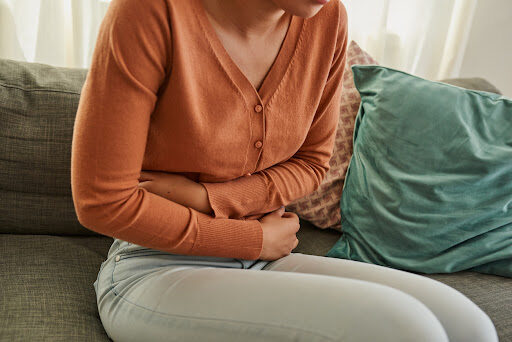Inflammatory bowel disease, or IBD, is the umbrella term that encompasses intestinal disorders where the digestive tract is chronically inflamed, including Crohn’s disease, irritable bowel syndrome (IBS), and ulcerative colitis. Approximately 3.1 million people in the United States are diagnosed with IBD. 1
Many people with IBD are able to manage their symptoms through a combination of treatments, lifestyle choices, and dietary plans. The following are dietary guidelines that are commonly beneficial for those with IBD, but keep in mind that different people can respond in different ways, and a dietary trigger that worsens one person’s symptoms may not have the same effect on another.
For individualized care, speak to a naturopathic doctor about a treatment plan that is right for your IBD symptoms.
Foods to Limit or Avoid
Dairy Products
High-fat dairy products that contain lactose often cause digestive issues and symptom flare-ups in those with IBD. 2 One consideration is to avoid butter, cream, and other full-fat dairy products, substituting them with alternatives such as almond or oat milk and cashew-based cheese instead. Keep in mind that limiting dairy may reduce your intake of calcium and vitamin D, and you will need to get these nutrients from other foods or supplements.
Alcohol, Caffeine, & Sugary Beverages
Alcohol, caffeine, and sugary beverages like soda can be common triggers for IBD symptoms. This is because they can cause dehydration as well as trigger diarrhea. 3 Instead, opt for filtered water most of the time. If you do choose to consume sugary, alcoholic, or caffeinated beverages, make sure that you are drinking plenty of water as well, to stay hydrated.
High-Fiber Foods
During an IBD flare-up, foods high in fiber can make symptoms worse. 4 Limit your intake of high-fiber foods, especially when your symptoms begin to flare up. This means avoiding things like whole wheat bread and pasta, dark leafy greens, broccoli, cauliflower, cabbage, and apples with the skin on (peeling the skin reduces the amount of fiber significantly).
Foods to Eat More
Low-Fiber Carbohydrates
Because high-fiber carbohydrates can worsen IBD symptoms, it is better to choose low-fiber carbohydrates during a flare-up. 5 That does not mean that you should choose carbohydrates with no nutritional value. Rice and potatoes are good options during an IBD flare-up.
Cooked and/or Peeled Produce
The highest concentration of insoluble fiber is in the skin of raw fruits and vegetables. 6 Peeling your fruits and vegetables before eating them can help those with IBD prevent fiber-triggered symptoms during a flare-up, and choosing cooked over raw produce is also an effective way to lower your fiber intake. Opt for applesauce, steamed broccoli, or peeled raw cucumbers.
Remember, naturopathic doctors are experts in gut health and can be a valuable addition to your treatment and management of IBD.








